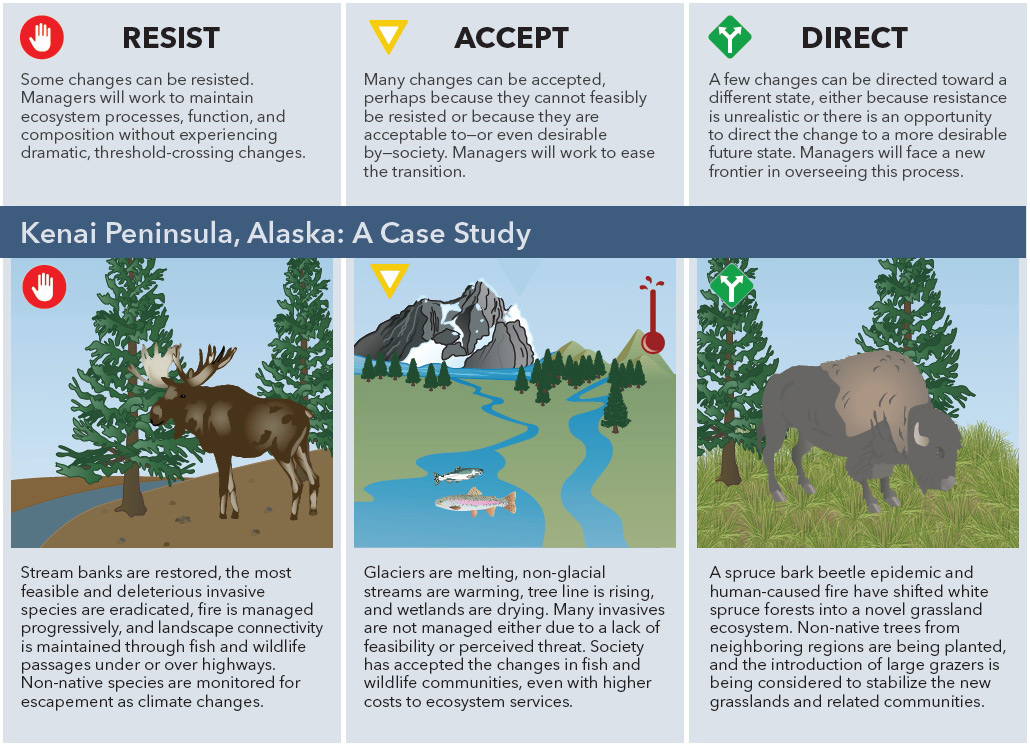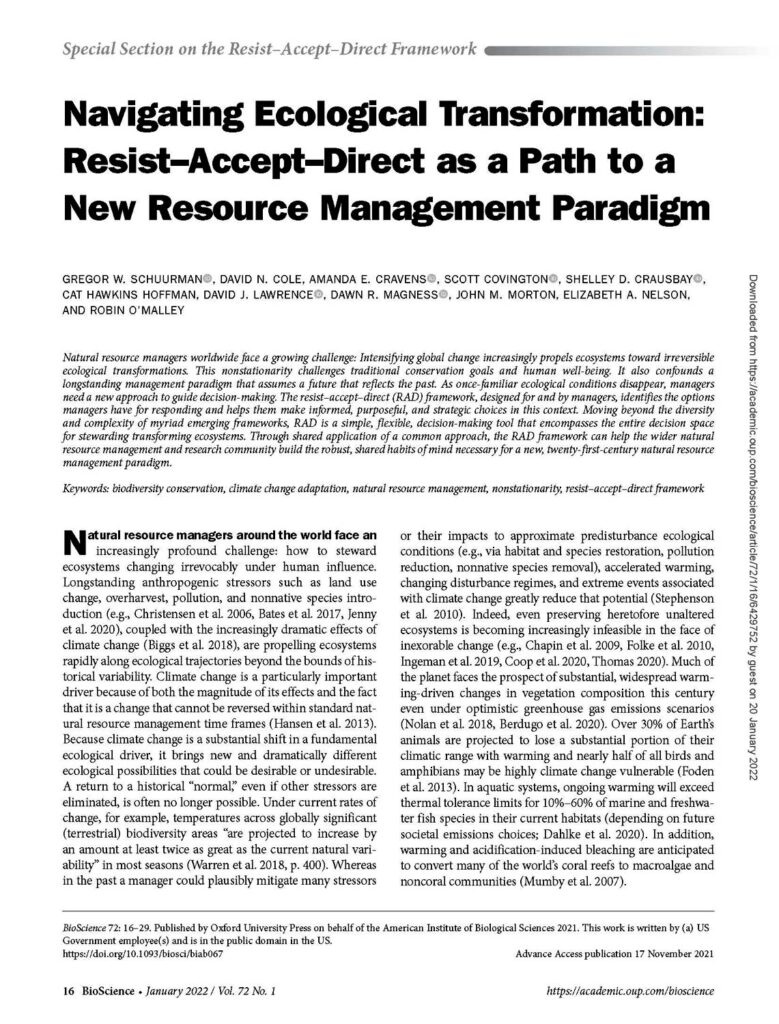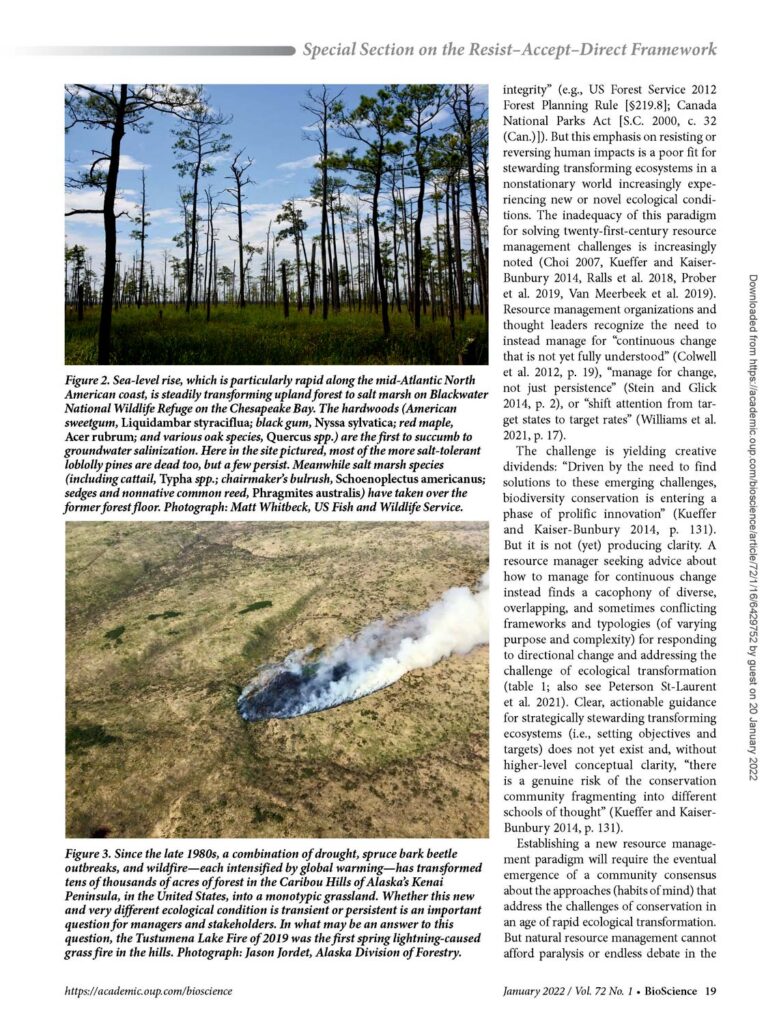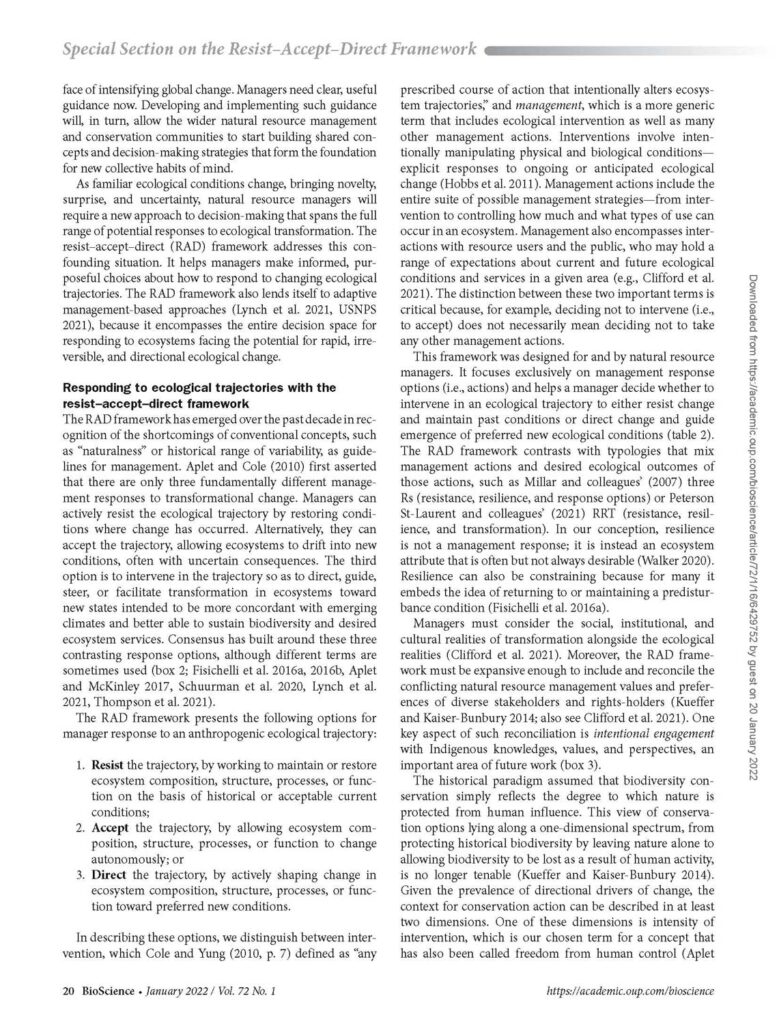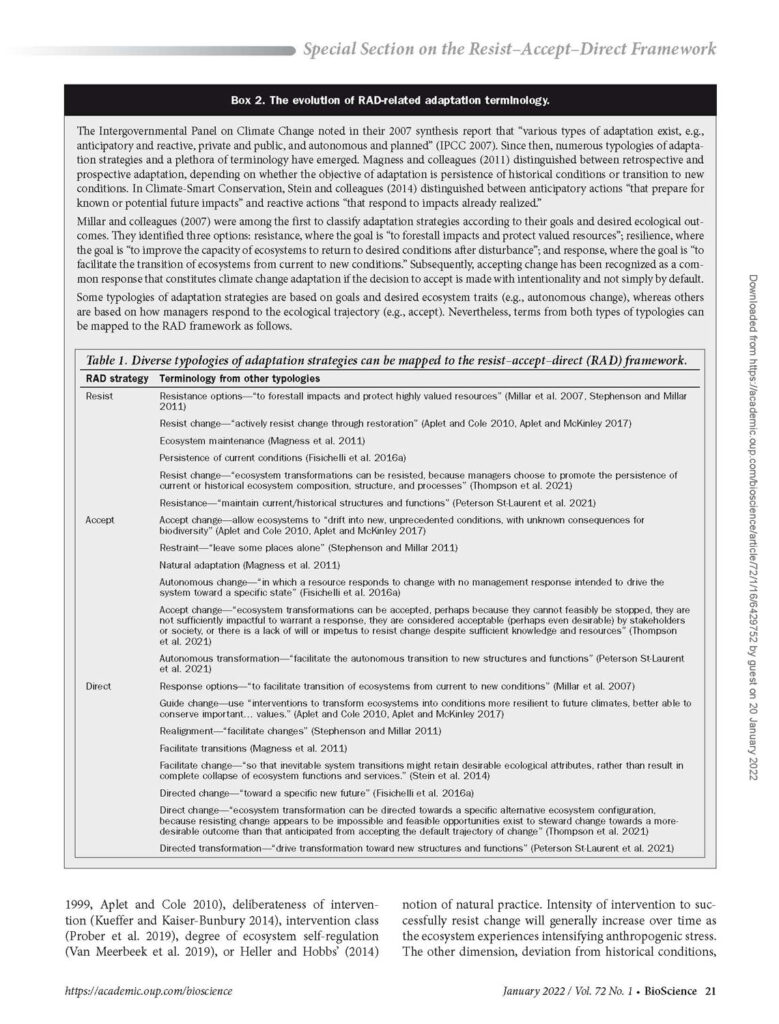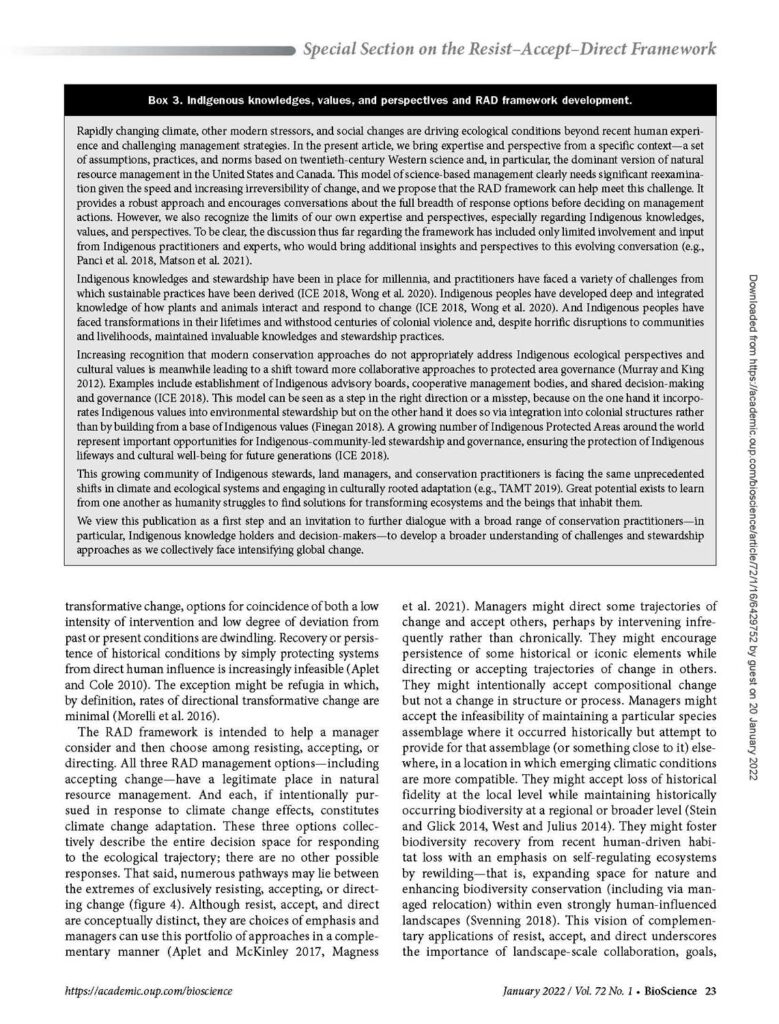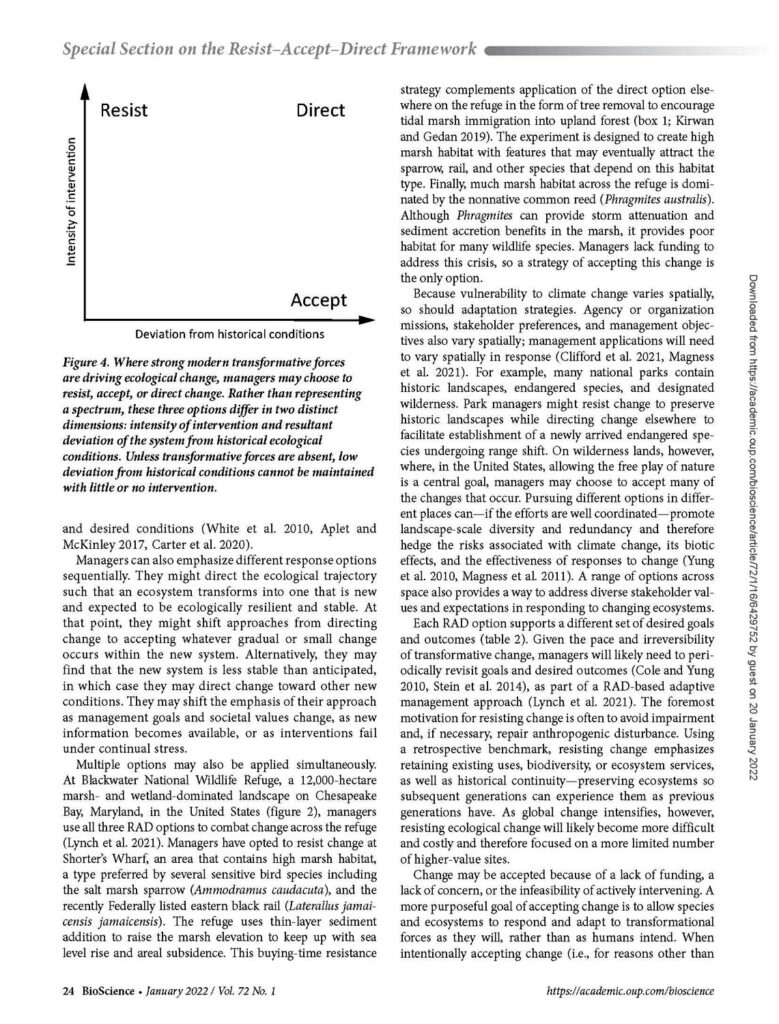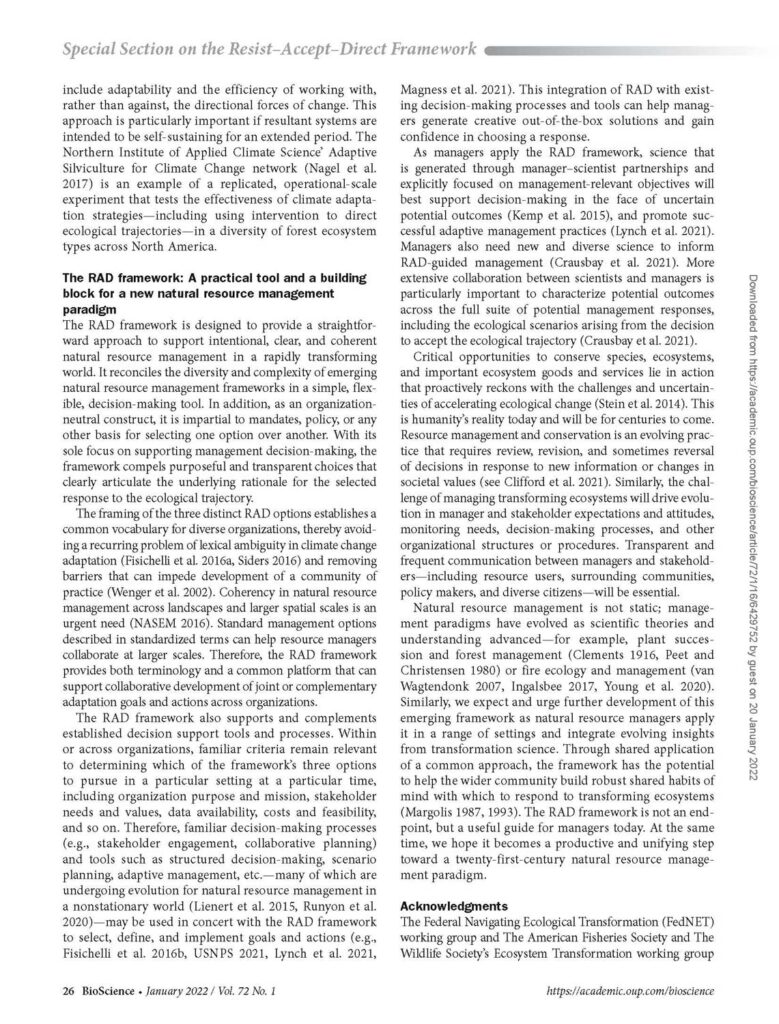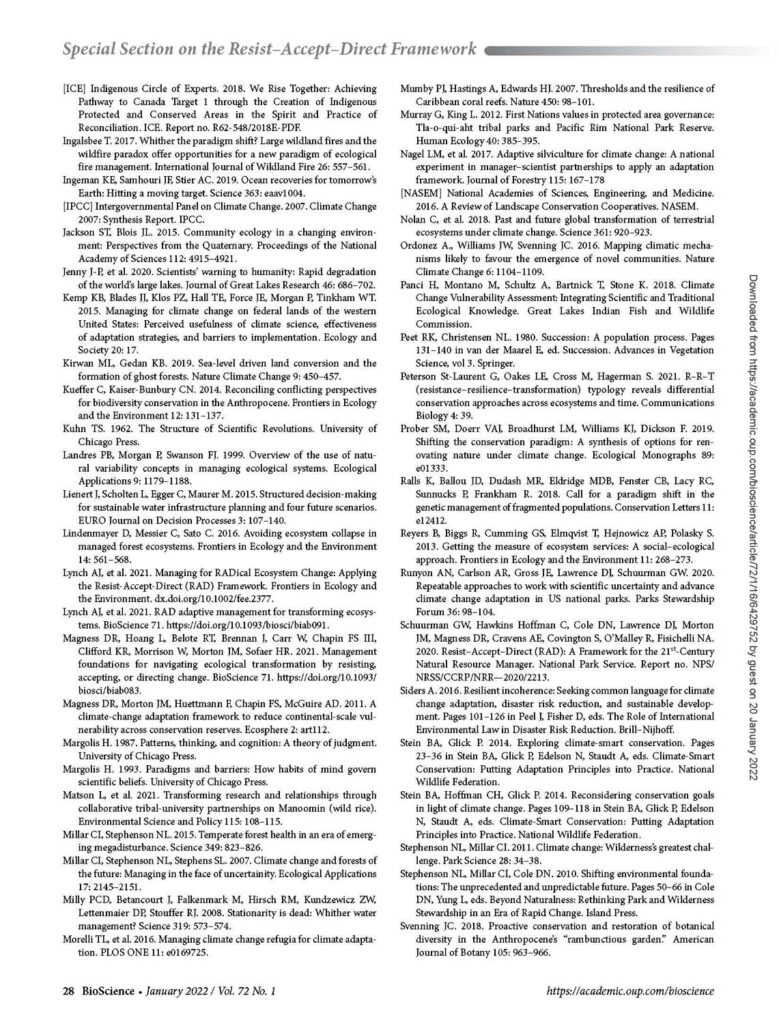Navigating Ecological Transformation: Resist–Accept–Direct as a Path to a New Resource Management Paradigm
by Gregor W. Schuurman, David N. Cole, Amanda E. Cravens, Scott Covington, Shelley D. Crausbay, Cat Hawkins Hoffman, David J. Lawrence, Dawn R. Magness, John M. Morton, Elizabeth A. Nelson, Robin O’Malley
(published on BioScience, Volume 72, Issue 1, January 2022, Pages 16–29, https://doi.org/10.1093/biosci/biab067, 17 November 2021)
Abstract
Natural resource managers worldwide face a growing challenge: Intensifying global change increasingly propels ecosystems toward irreversible ecological transformations. This nonstationarity challenges traditional conservation goals and human well-being. It also confounds a longstanding management paradigm that assumes a future that reflects the past. As once-familiar ecological conditions disappear, managers need a new approach to guide decision-making. The resist–accept–direct (RAD) framework, designed for and by managers, identifies the options managers have for responding and helps them make informed, purposeful, and strategic choices in this context. Moving beyond the diversity and complexity of myriad emerging frameworks, RAD is a simple, flexible, decision-making tool that encompasses the entire decision space for stewarding transforming ecosystems. Through shared application of a common approach, the RAD framework can help the wider natural resource management and research community build the robust, shared habits of mind necessary for a new, twenty-first-century natural resource management paradigm.

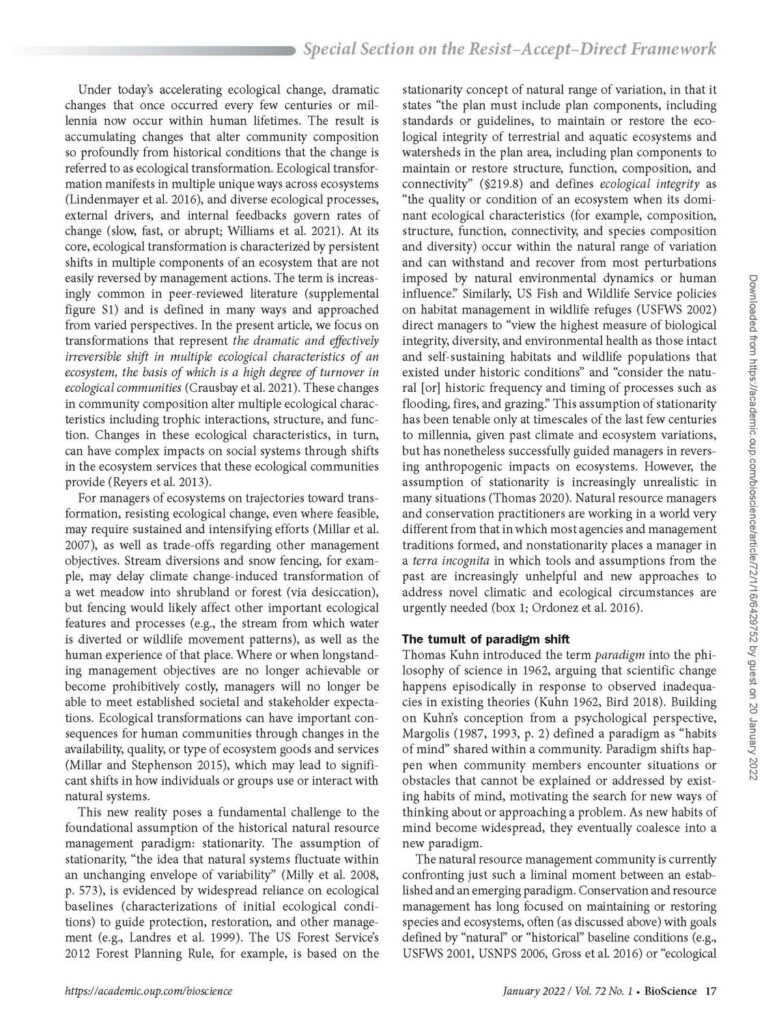
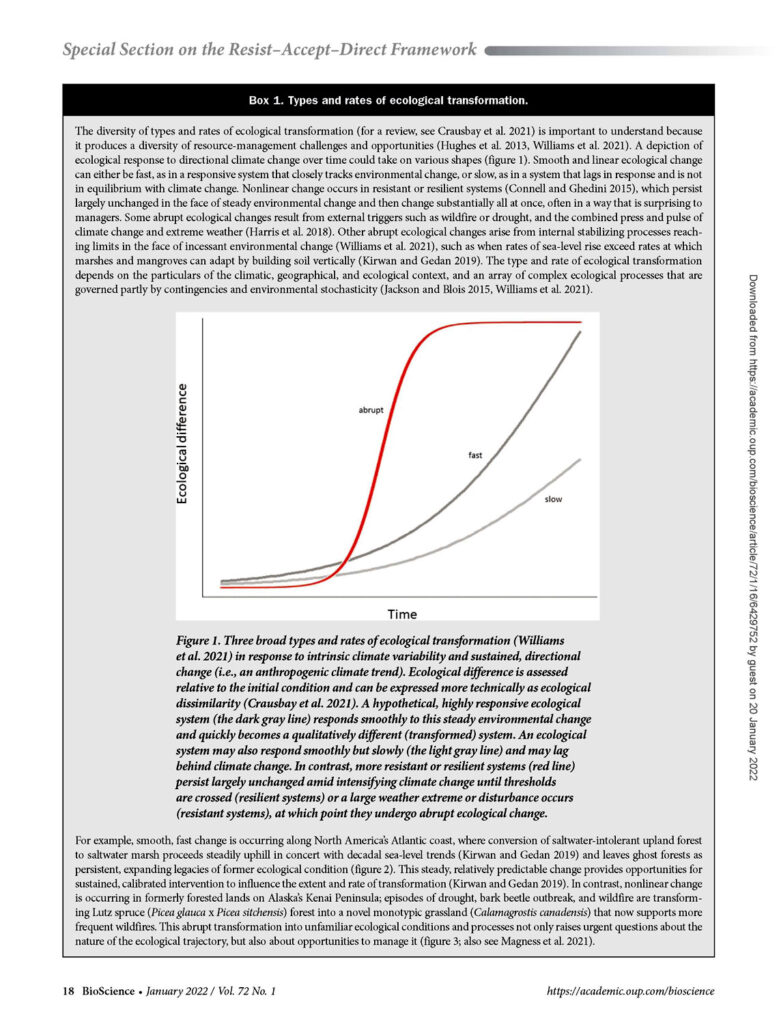
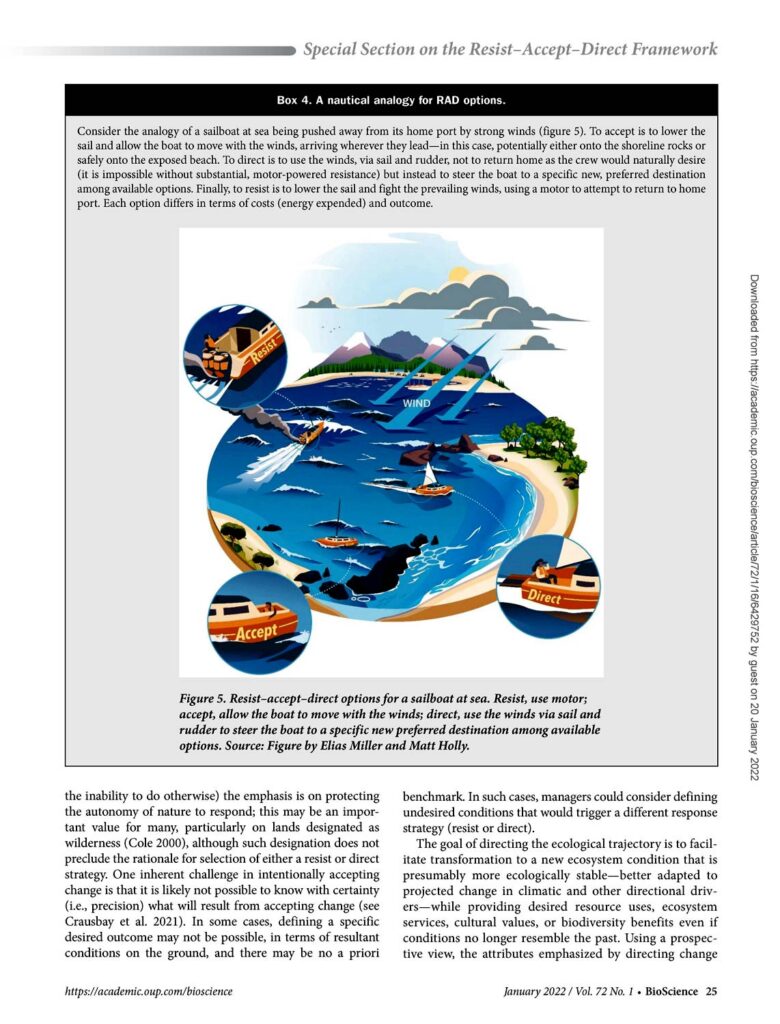
Scopri di più da GognaBlog
Abbonati per ricevere gli ultimi articoli inviati alla tua e-mail.
